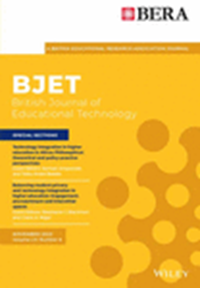Internationalization at a distance via virtual mobility in the Global South: Advances and challenges
Abstract
Internationalization of higher education (HE) has increasingly been a subject of interest among scholars, due to developments in the field, such as increased student and staff mobility, inter-university research and teaching partnerships, and rapid technological advancements. Internationalization efforts have mainly focused on the recruitment of international students and staff to universities in the Global North, the establishment of satellite campuses overseas and research collaborations. To compete on a more even footing, countries in the Global South have increasingly invested in their HE systems and actively promoted themselves as international destinations in this changing global landscape. In this paper, we discuss the strategies and limitations of internationalization at a distance (IaD) with a specific focus on Tanzania. As an emerging destination for international students, the country's expanding HE sector is positioning itself as a global and competitive international destination through diverse efforts such as virtual mobility. This paper draws on interviews with key staff from an open and distance-learning university in Tanzania to examine and theorize the challenges relating to the provision of online distance learning (ODL) to non-mobile international students. The theoretical lens is informed by the capabilities approach and ideas of conversion factors and agency. The paper looks beyond existing limitations and proposes the idea of a responsive agency that draws on international collaborations as a way of overcoming contextual challenges through pooling and sharing resources where they exist. In this way, institutions are not independent of their affiliation with others, they belong to a community. This broadens the practice of internationalization to fostering supportive collaboration aimed at improving access to quality international HE.
Practitioner notes
What is already known about this topic
- Rising technology-supported activities have created new opportunities for universities internationalization.
- Education plays a key role in intercultural understanding.
- Internationalization of educational research and services improve quality by requiring respective higher education institutions improve academic standards.
What this paper adds
- Bring together the concepts of capabilities and third space in IaD.
- IaD opportunities are yet to be fully tapped by both higher education institutions and various government policies.
- The third space enables hybridity, culture translation and the emergence of new forms of identity.
Implications for practice and/or policy
- To engage and sustain IaD universities must have reliable ICT infrastructure and staff with requisite skills to cope with rapid technological advancement.
- Widening participation to those who are excluded from conventional, campus-based universities is critical to ensure achievement of SDG 4.





 求助内容:
求助内容: 应助结果提醒方式:
应助结果提醒方式:


